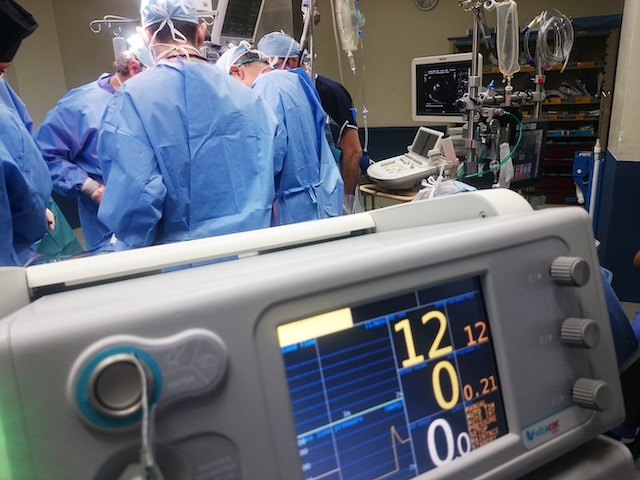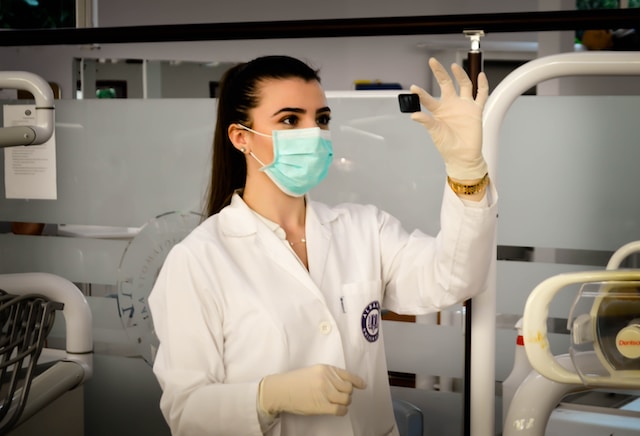The Integration of Technology in Moden Hospital Systems

In today’s rapidly evolving world, the integration of technology in hospitals is transforming the healthcare landscape. This article explores the profound impact of technology on patient care, healthcare processes, and the overall efficiency of medical institutions.
The Digital Healthcare Revolution
Technology is ushering in a digital healthcare revolution that extends beyond electronic health records (EHRs). From telemedicine to robotics, healthcare institutions are embracing innovative solutions to enhance patient outcomes.
Telemedicine and Virtual Health
Telemedicine is bridging geographical barriers, providing patients with access to healthcare professionals via video consultations. This revolution in telehealth is expanding the reach of medical expertise, particularly in remote areas.

Electronic Health Records (EHRs)
EHRs have streamlined the management of patient data, making medical records easily accessible and reducing errors. Interoperable EHR systems allow healthcare providers to collaborate seamlessly, improving patient care coordination.
Smart Hospitals
The concept of smart hospitals is on the rise, leveraging the Internet of Things (IoT) to connect medical devices, patient monitoring systems, and healthcare professionals. This interconnectedness enhances real-time data sharing and decision-making.
Robotic Surgery and Automation
Robotic-assisted surgery is revolutionizing the operating room. Surgeons can perform minimally invasive procedures with precision, reducing patient recovery times and complications.
AI and Predictive Analytics
Artificial Intelligence (AI) and predictive analytics are aiding in early disease detection and risk assessment. Machine learning algorithms analyze vast datasets to identify patterns and predict patient outcomes.
IoT Wearables and Remote Monitoring
Patients are becoming active participants in their healthcare through wearable devices. These gadgets continuously monitor vital signs and transmit data to healthcare providers, enabling early intervention.
Patient Engagement and Mobile Apps
Mobile apps are empowering patients to manage their health actively. Patients can schedule appointments, access test results, and receive medication reminders, fostering better engagement in their care.
Data Security and Privacy
As technology advances, ensuring data security and patient privacy becomes paramount. Hospitals are investing in robust cybersecurity measures to protect patient information.
Enhanced Diagnostic Imaging
Advanced imaging technologies, such as MRI and CT scans, provide unparalleled insights into medical conditions. These high-resolution images aid in accurate diagnoses and treatment planning.
Genomic Medicine
The integration of genomics and technology is personalizing healthcare. Genetic testing enables tailored treatment plans and targeted therapies based on an individual’s unique genetic makeup.

Streamlined Administrative Processes
Administrative tasks, such as appointment scheduling and billing, are being automated through technology, reducing administrative burdens on healthcare staff.
Improved Medication Management
Automated medication dispensing systems minimize medication errors, ensuring patients receive the correct drugs and dosages.
Remote Consultations and Second Opinions
Patients can seek second opinions from specialists around the world via telemedicine, enhancing the quality and comprehensiveness of healthcare.
Challenges and Ethical Considerations
While technology offers incredible benefits, it also presents challenges, including issues related to data privacy, medical ethics, and the digital divide. Healthcare institutions must navigate these challenges to ensure equitable and responsible technology adoption.
Conclusion – Shaping the Future of Healthcare
The integration of technology in hospitals is revolutionizing healthcare delivery, improving patient outcomes, and enhancing overall efficiency. As technology continues to advance, healthcare institutions must strike a balance between innovation and ethical considerations, ultimately shaping the future of healthcare for the better. With responsible adoption and a patient-centered approach, technology is poised to lead us into a new era of healthcare excellence.

